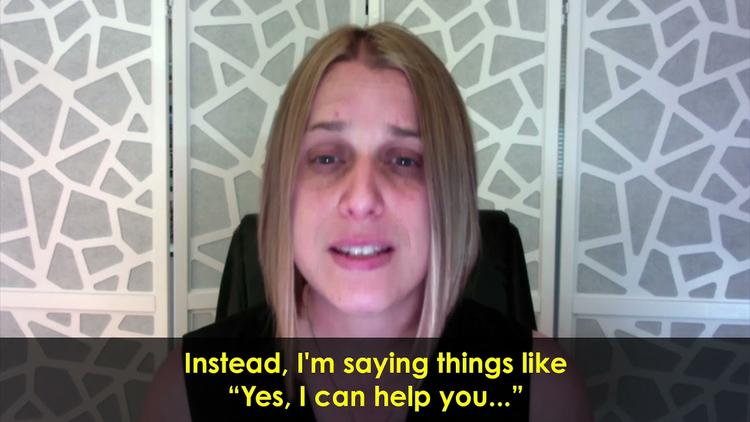
Gainesville, Florida (Special to Informed Comment) — The Affordable Care Act (ACA) was supposed to contain costs and make insurance for health / mental health care affordable. It did bring coverage to 20 million but 30 million remain uninsured. Data indicate that the bad outweighs the good. It’s too expensive, unsustainable, overly complex and bureaucratic. Even worse, it’s a gift to private insurers and other 1% corporate stakeholders and profiteers in the neoliberal medical-industrial-Congression
Because the for- profit, private insurance industry so thoroughly dominates our health care system as indicateds above, the basic concept, purpose and system of health insurance is defined by them. The U.S. subscribes to a private business model of health insurance that defines insurers as commercial entities. Private insurers maximize profits by mainly limiting benefits, maximizing health policy premiums or by not covering people with health problems. Like all businesses, their goal is to make money. Under the business model, the greed of casual inhumanity is built in and the common good of the citizens and nation is ignored; excluding the poor, the aged, the disabled and the mentally ill is sound business policy, since it maximizes profit.
Although health insurance affordability for the majority of US citizens still remains elusive, President Biden’s health insurance plan wants to shift many more dollars into private, Wall Street insurance industry hands. The takeover of health insurance by private Wall Street entities continues apace as Democrats/Biden propose to increase taxes and give it to the private profit insurance industry—the basic source of our profound administrative waste, along with the costly administrative burdens they place on the delivery system that requires large profits. Profiteering continues unabated as private insurance sells us services we don’t need/want , such as deductibles and other cost sharing, maintenance of narrow networks, requiring prior authorization with increased administrative costs, excessive ongoing paperwork/documentation requirements, all while avoiding paying for surprise bills and other denied benefits.
FUNDAMENTAL PRINCIPLES OF THE NEOLIBERAL HEALTH INSURANCE INDUSTRY:
1). Promote deregulation—working/lobbying for the removal of government control over the industry. Historic examples of deregulated industries in the U.S. include the airline, telecommunication, and trucking industries.
2). Maintain, strengthen and increase privatization—promote the transfer of ownership, property, or business from the government to the private sector. Examples of privatization include the health insurance industry, the correctional system in the form of for-profit private prisons, interstate highway system construction, privatization of public schools into private charter schools, privatization of medical diagnostic and treatment services such as dialysis centers, speciality hospitals and other outpatient units.
Physicians for a National Health Program: “Mental health professionals speak out on Medicare for All”
3). With neoliberalism, increase transfer of ownership and control of economic programs/services from the government to the private sector; promote the private sector’s influence on the economy by achieving deep reductions in government spending via austerity and large cutbacks; discourage/block spending on all social welfare/mental health / public jobs programs (similar to the Works Progress Administration (WPA) of the 1930’s) and other state/local/federal government programs. Governmental austerity paves the way for more profiteering by those who seek to replace government programs with private corporate entities.
Against this background, a burgeoning mental health crisis where millions of Americans cannot access or afford mental health care has emerged. More than 10% of Americans with mental illness have no health coverage, but even those with costly commercial insurance plans can’t afford care. Commercial plans discriminate against mental health care by limiting choice of covered mental health providers; paying mental health providers far less than other health providers; and restricting or denying common treatments such as prescriptions, psychotherapy/counseling and hospitalization. A growing body of evidence shows that ignoring mental illness leads to more sickness, more death and higher health costs for everyone.
SOBERING MENTAL HEALTH STATISTICS:
1). Suicide is the tenth leading cause of death overall in the U.S., and the second leading cause of death among youth and young adults aged 10-34. The suicide rate in the U.S. has increased by 35% since 1999.
https://www.nimh.nih.gov/healt
2). In 2019, 20.6% of U.S. adults suffered from at least one mental illness, up from 17.7% in 2008. The percentage of Americans with serious mental illness in 2019 increased to 5.2%, up from 3.7% in 2008 https://www.samhsa.gov/da
3). Nearly one in ten (9.7%) youth in the U.S. had severe major depression in 2018. The State of Mental Health in America
4). Drug overdoses caused more than 70,000 deaths in 2019, a 57% increase from 2013. https://www.cdc.gov/mmwr
5). Mental health conditions have increased even more sharply among younger adults. The percentage of Americans aged 18-25 with mental illness went from 18.5% in 2008 to 29.4% in 2019. The percentage of young adults with serious mental illness more than doubled, from 3.8% in 2008 to 8.6% in 2019. https://www.samhsa.gov/d
OPPOSITION TO PUBLIC MENTAL HEALTH/HEALTH PROGRAMS AND INSURANCES
Even with the dangerous coronavirus pandemic, big insurance and big pharma continue opposing legislation for the new Medicare for All. These resistant, self-serving industries have the most to lose if their huge profits are redirected to direct patient care for all. Individual and corporate predators regard democracy, government and community as obstacles to their greed and avarice, always placing profits over individual patients, families and public health. It’s no wonder so many beholden members of Congress want to protect the interests of big insurance and big pharma, industries that spent $371 million on lobbying in 2017 alone.
HEALTH INSURANCE PROFITS-2021
US health insurance companies beat analyst expectations and reported billions in profits in the first quarter of 2021, after making a windfall in the first year of the Covid-19 pandemic. The insurers’ success comes as small healthcare providers face unprecedented financial stress and millions of Americans struggle to cover health costs. The large profits reaped by the insurance firms are also likely to increase criticism of the US healthcare sector.
The nation’s largest health insurer, UnitedHealth Group, reported $4.9bn in profits in the first quarter of 2021 compared to $3.4bn in the same period in 2020 – a 44% increase. The higher than anticipated profits prompted the company to raise its projections for the year. Anthem also beat estimates in its report of $1.67bn in profits in the first three months of 2021, a 9.5% increase from the same period last year. Humana’s net income was $828m in the first quarter, a 75% increase from the same period the year before.
CVS Health, which owns the Aetna health insurance provider and drugstores, reported $2.2bn in profits, up from $2bn in the same quarter a year before. Cigna reported its net income fell to $1.17bn from $1.19bn in the same period last year, but it still raised its forecasts for the year. Together, the companies represent the country’s five biggest health insurers by membership. (The Guardian, May, 2021).
Neoliberalism support for privatization of health insurance is grounded in the philosophy espoused by University of Chicago economist, Milton Friedman. Friedman said “the corporations should not take into account the public interest” and added that “the government itself should not take into account the public interest. The job of the government is to simply let everybody make as much money as they can, however they can”.
Classical economist Michael Hudson notes that Big Pharma , like Big Insurance, doesn’t want any kind of anti-monopoly legislation . “Essentially you have what is called a free market, as advocated by Milton Friedman. A free market means the wealthiest people dominate the market and the supply of credit, the management of the economy that allocates credit, and who gets what shifts from Washington to Wall Street. It shift’s from the government to the private financial sector, and allows the financial sector to do the planning. One problem with this is the financial sector lives in the short run. So, it means that they only look for the next three months, the next year’s balance sheet, because the free market is so complex you don’t know what’s going to happen. Well, of course, since you’re managing it from Wall Street you in reality do know what’s going to happen but you don’t want to tell people exactly what’s going to happen”.
We have several decades of experience with neoliberal conversion of mental health services/insurance into a business. Our health care is being rationed, with care guidelines determined by profitability and secrecy decided in private corporate boardrooms. To realize large profits demanded by Wall Street investors, our health system must attract the healthy and turn away the sick, disabled, the poor, many of the old, and the mentally ill. So far, this country has been unable to eliminate private control of health insurance even in spite of the small value it offers when 15 to 25 percent of the health care dollar is skimmed off for private corporate profit and overhead. Neoliberals avoid the fact that if the existing public, non-profit Medicare program could be extended to all citizens for both mental and physical health and still containing lower costs.
UNINFORMED VOTERS MAKE IRRATIONAL CHOICES
American voters have fallen victim to an elections marketing system who’s task is to create uninformed voters who will make irrational choices. In a private business-run society, you market commodities, you market candidates. Most electoral campaigns are designed to marginalize and avoid serious policy issues like inequality, insurances, mental health services, public health, Medicare, Medicaid, social services, women’s health, DACA, progressive taxation, climate change etc. Important economic issues are avoided with political energy deflected onto wedge issues, superficialities, personality, rhetorical style, body language, mood swings, tweeting and other topics that amount to us foolishly chasing our tails. In the end, this allows the country to be run by a few big 1% economic interests looking only after themselves. Many voters are not deluded because they just don’t really see any real choices or significant differences offered to them by Democrats or Republicans in the business-managed electoral system, where unfortunately the most heavily funded candidate almost always wins.
Not only have both major U.S.political parties abandoned ideas and innovation, but also abandoned most voters. Republicans and Democrats alike are merely reactive to events/problems as demanded by their sponsors/donors in big business, oligarchs and large unaccountable corporations. 2022 politics in the US has devolved into one party, the “business party”, with two branches, democrats and republicans., who engage in and promote distracting contests giving us the illusion that they are basically different from one another on basic economic issues.
Since a reality TV star and real estate developer was elected president of the US, it’s clear that celebrity culture is an essential component of the corporate controlled economic system that govern our lives under the “business party”. Buffoon politicians from both parties have become shameless, beholden tools and lackeys of corporate America. They offer us a devil’s bargain mix of self-serving toxic programs and policies, frequently changing their positions as fast as others change socks. Will Rogers wrote: “A fool and his money is soon elected”.
Conditions as described above have led to the observation that U.S.voters popular desires cannot be achieved because there’s no vehicle to express their unhappiness, and there’s no way in which American voters can express what they want either in the Democratic or the Republican parties because they are really the same party and are in full agreement with what they are doing.
The voters don’t matter; remember we are talking about the American definition of democracy, which is an oligarchy. Polls have shown large popular support by citizens for Medicare for All, but neither political party has supported it. Michael Hudson writes that by “conquering the brains of a country by shaping how people think, you can twist their view into ‘unreality economics’ and make them think you are there to help them and not to take money out of them, then you’ve got them hooked.” This is how Big Insurance and Big Pharma maintain control of U.S. health insurance. Our system is privatized, financialized and unregulated so that private, big insurance companies can make money”.
President Biden and many Democrats have spent their careers defending the financial sector, including big insurance and big pharma, whose policy is also to maintain and further privatize basic health care financing and infrastructure. Economist Hudson further notes that, “Biden’s long political career has been right-wing. He’s the senator from Delaware, the country’s most pro-corporate state—which is why most U.S. corporations are incorporated there. As such, he represents the banking and credit-card industry. He sponsored the regressive bankruptcy “reform” written and put into his hands by the credit-card companies. As a budget hawk, he’s rejected Modern Monetary Theory (MMT), and also “Medicare for All” as if it is too expensive for the government to afford—thereby making the private sector afford to pay 18% of US GDP for health-insurance monopolies, far more than any other country. That means blocking governments from providing basic services at cost or on a subsidized basis—education, health care/health insurance, roads and communications. Privatized and financialized economies are high-cost.”
CITIZEN’S UNITED SUPREME COURT DECISION: A DARK DAY IN AMERICAN HISTORY
January 21, 2010 will go down as a dark day in the history of American democracy when editors of the New York Times wrote that the Supreme Court “Citizen’s United” decision that day “strikes at the heart of democracy” by having “paved the way for corporations to use their vast treasuries to overwhelm elections and intimidate elected officials into doing their bidding by reaching into the political process to hand unprecedented power to corporations.”
The Supreme Court ‘Citizen’s United’ decision opened the floodgates for big money in our politics, allowing giant corporations and a handful of the wealthiest families to spend obscene amounts of money in our elections. Citizens United is just one of a line of terrible Supreme Court decisions holding that money equals speech and corporations are people under the First Amendment — thereby allowing huge corporations and the super wealthy/oligarchs to buy undue access to members of Congress, and to effectively dictate legislative outcomes. This is significant in policy decisions reinforced by influence of corporate lobbies, now further enhanced by the Court’s decision which favors the very small 1% sector of the population that dominates the economy. Our society is run by a class-conscious 1% business community dedicated to reducing the political and economic power of the 99%.
Resistance to true campaign finance reform, and strong support for the U.S.Supreme Court’s, ‘Citizens United’ decision by unaccountable/unregulated large corporations and ultra-wealthy individuals/families, is based on their Machiavellian understanding of the purpose of dark money in politics: to use dark money to change political outcomes to favor themselves, the 001% oligarchs and becomes a threat to democracy because its source is not made public. Dark money is corruption that erodes confidence and trust in local, state and national government and in both major political parties. It’s used to throw referendums and elections from which can come many of today’s social, economic, public health, mental health and environmental problems. Dark money is used to hide conflicts of interests and self promotion with bogus scientific controversies, fake news and fake grassroots campaigns.
Corporate big business ideology asserts that human society is a market, and social relations are commercial transactions with a “natural hierarchy” of winners and losers. Attempts to limit competition, change social outcomes eg, estate tax issue, mandated health insurance, etc. is treated as hostile to liberty and big business interests. Count on the neocons/GOP to crush unions and collective bargaining, minimize or eliminate tax and public protection regulations, privatize public services and promote privatization of all social/mental health/health programs. Inequality is okay since it’s a result of a reward for merit and generates wealth for the tiny .001%, which the false neoliberal myth says trickles down to enrich everyone in the 99%. Tax and other social policies to create a more equal society are dismissed as counterproductive to the interests of the ultra wealthy.001%.
The assumption that whatever the market produces is rational and functional is the bedrock of Western economies. And it’s wrong , says economist Michael Hudson, because It negates the fact that you really need some government power strong enough to override the self-serving special interests of oligarchs and other 1% corporate interests. And that takes a very strong government, which is why the free market people have always opposed strong government and why their economic models don’t give any acknowledgement for government investment in infrastructure that Biden wants or any government activity that is able to override that of the 1% rentier class, the financial class, the property-owning class and the corporate monopolists. That’s the problem we have.
“GOING THERE WITH DONALD TRUMP”: Adam Gopnik further describes how this problem is exacerbated in his 2016 New Yorker article,“ Going There with Donald Trump”:
(Gopnik excerpts prepared by Paul Street in CounterPunch, Aug 18,2022 article, “The Tendentious Mr. Brooks: the Chickenshit Conformist of the NYT”) …….. ‘an incoherent program of national revenge led by a strongman; a contempt for parliamentary government and procedures; an insistence that the existing, democratically elected government…is in league with evil outsiders and has been secretly trying to undermine the nation; a hysterical militarism designed to no particular end than the sheer spectacle of strength; an equally hysterical sense of beleaguerment and victimization; and a supposed suspicion of big capitalism entirely reconciled to the worship of wealth and “success” It is always alike, and always leads inexorably to the same place: failure, met not by self-correction but by an inflation of the original program of grievances, and so then on to catastrophe. The idea that it can be bounded in by honest conservatives in a Cabinet or restrained by normal constitutional limits is, to put it mildly, unsupported by history…To associate such ideas too mechanically with the rise of some specific economic anxiety is to give the movement and its leader a dignity and sympathy that they do not deserve. In France, Jean Marie Le Pen’s voters are often ex-Communists, working people who also believe their national identity to have been disrupted by immigration. That does not alter, or make more sympathetic, the toxic nature of his program; the ideology that it resonates to is an ancient and persistent one, that thrives through good times and bad. That Trump can dominate an increasingly right-wing nationalist party with a right-wing, white-nationalist creed is neither surprising nor all that complicated. Anyway, the notion that a class cure can be had for a nationalist disease was the persistent, tragic delusion of progressive politics throughout the twentieth century.’
PRIVATE HEALTH INSURANCE IN FULL CONTROL OF MENTAL HEALTH SERVICES – STILL
With private commercial insurance companies in full control, they continue to further restrict mental health care by limiting or denying claims for hospital stays, outpatient (office) visits, medication, psychotherapy/counseling, and other common treatments for mental illness and substance use disorders.
1). Insurers are required by law to cover mental health and other health services equally, but courts have found that they routinely deny claims based on financial — not medical — reasons.
2). In one case, United Behavioral Health — the largest managed mental/behavioral health company in the country — was found guilty of denying 60,000 mental health claims for financial reasons. The lead plaintiff in the case was an insured patient who was denied coverage and had paid nearly $30,000 out-of-pocket for medically necessary treatment. https://www.statnew
3). Commercial plans also restrict access to needed medications: A study of 84 different commercial health plans found that a majority of the plans covered fewer than 50% of antipsychotic medications, which are critical in treating illness like schizophrenia. In one-third of these insurance plans, the majority of antipsychotic medications are only provided on a “restricted” basis, requiring that patients pay higher out-of-pocket costs. https://www.nami.org/Support-
4). A review of more than 90 studies shows that mental and behavioral services can reduce a patient’s overall health care costs by an average of 20%. The Impact of Psychological Interventions on Medical Cost Offset: A Meta‐analytic Review
5). Experience with Medicaid shows that eliminating the waste and greed of commercial insurance improves outcomes and saves money. In 2012, Connecticut’s Medicaid program abolished its commercial insurance-run “managed care” model in favor of a nonprofit single-payer plan for enrollees. By eliminating the insurance middleman, Medicaid could invest directly in mental health by integrating physical and behavioral health care and adding community-based programs. Among Medicaid enrollees, emergency room visits have since fallen by 25%; administrative costs dropped dramatically, from 25% to 3.5% of total costs; and overall health costs
By%20Ellen%20Andrews&text=As%2
MEDICARE FOR ALL MEANS MENTAL HEALTH CARE FOR ALL
Commercial health insurers discriminate against mental health care and keep Americans from getting the services we need. There is a better way: Single-payer Medicare for All would eliminate the greed and administrative waste of commercial insurance and cover everybody in the U.S. for all medically necessary care, including behavioral and mental health services, substance use disorder treatment, and prescription medications. With Medicare for All, coverage is lifelong and portable, and services are provided without the copays, deductibles, and surprise bills that keep patients from getting care. And unlike commercial insurance, Medicare for All provides free choice of any hospital or provider, including psychiatrists, psychologists, clinical social workers, licensed mental health counselors, and licensed marriage and family therapists.
SUPPORT MEDICARE— A SOLID INVESTMENT IN OUR COUNTRY
Let’s never forget that Universal Medicare for All is a solid investment in all citizens of our country by simply promoting a social service for universal access to affordable health care insurance for all. Aren’t we a society that cares enough to see that everyone receive the health care they need? That’s the basic purpose of Medicare for All, and it’s certainly the right thing to do now with the Covid-19 pandemic.
The history of our most successful national health insurance program, Medicare, provides one of the best arguments for expanding the program to cover everyone. When Medicare was enacted 57 years ago, following a broad grassroots campaign, many believed the dream of a full national health insurance system was right around the corner.
Unfortunately, five decades later, Medicare still has not been expanded. Most of the changes have been contractions with higher out-of-pocket costs for beneficiaries and repeated attempts at privatization by big pharma, the health insurance industry and its “champions” in the White House and Congress.
It’s time to end inadequate and dangerous health insurance programs. Insist on real health insurance reform essential for individuals and families. American history is filled with examples of fundamental, democratic change brought about by successful mass action and public pressure against the counseling of the neoliberal, privatization, 1% self-serving oligarchs/vested interest crowd. No more waiting! Ask your legislators to fully support Medicare For All now. Join the majority of Americans who support improved Medicare for All. Ask your legislator to support legislation now filed in the House (H.R. 1976) and Senate (S. 4204) that would establish this badly needed reform.
Full text-HR 1976.
https://www.congress.gov…(S.4






